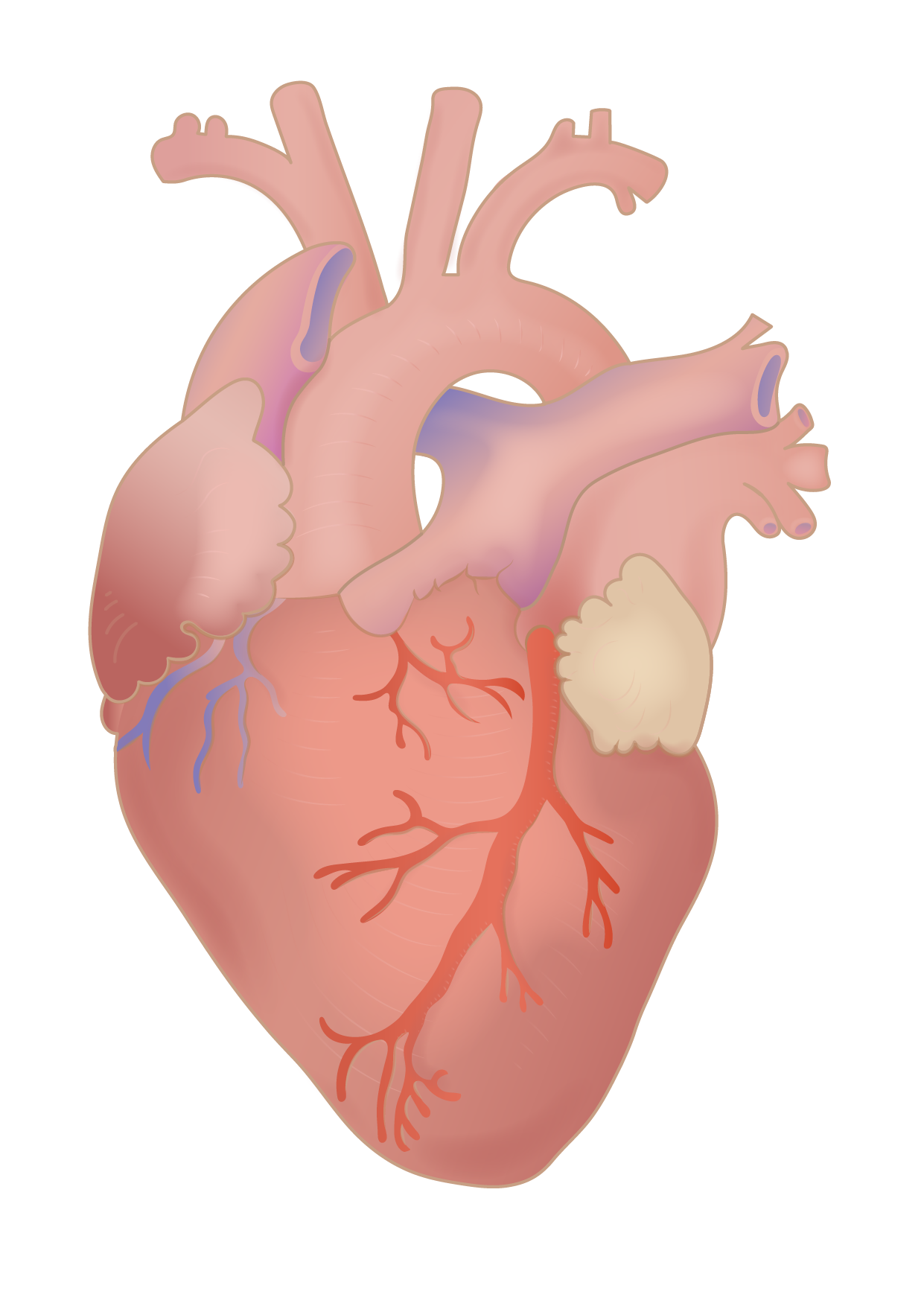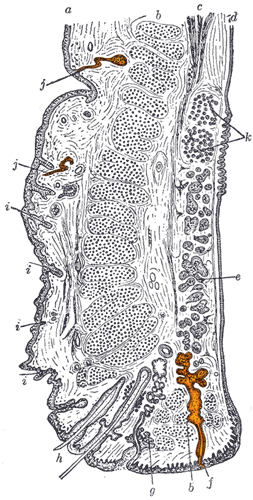Human Body Glossary
Glossary on my Field of Study
This glossary is made to help people learn about my field of study, which is biology. In this glossary, I will more specifically talk about the human body.
- (to digest)
- verb
- Break down (food) in the alimentary canal into substances that can be absorbed and used by the body.
- Example: It is very important for the reptiles not to become dehydrated, as with all animals, as it affects their ability to metabolize and digest properly, and also affects their thermoregulation.
- fr: digérer

- (to) breathe
- verb
- Take air into the lungs and then expel it, especially as a regular physiological process.
- Example: They need to breathe air to get their oxygen.
- fr: respirer

- (to) reproduce
- verb
- Produce offspring by a sexual or asexual process.
- Example: Natural Selection If different genotypes are associated with the different phenotypes and those phenotypes differ in their ability to reproduce, then the alleles that lead to the development of the favoured phenotype will increase in frequency.
- fr: reproduire

- (to) see
- verb
- Perceive with the eyes; discern visually.
- Example: Urban foxes are not always considered pests, people often like (to) see wildlife in their back garden and have been known to leave out food specifically to attract foxes
- fr: voir

- Bacteria
- noun
- A member of a large group of unicellular microorganisms which have cell walls but lack organelles and an organized nucleus, including some which can cause disease.
- Example: Prior knowledge therefore can affect what movements of objects make people believe they are alive as adults know that some living organisms such as bacteria or cells do not need psychological intention in order to move yet they are still living.
- fr: bactéries
- Blood
- noun
- The red liquid that circulates in the arteries and veins of humans and other vertebrate animals, carrying oxygen to and carbon dioxide from the tissues of the body.
- Example: For Alice, a 17-year-old girl living and coping with this chronic disease, its physiological symptoms may be mild or negligible, its major impact on her life being the daily blood glucose tests, dietary restrictions and insulin injections which can appear to be inconvenient, burdensome, even debilitating tasks to some young sufferers.
- fr: sang
- Bones
- noun
- Any of the pieces of hard whitish tissue making up the skeleton in humans and other vertebrates.
- Example: Calcium is important for the proper growth of bones and teeth, normal blood coagulation, and muscle and nerve function.
- fr: os
- Brain
- noun
- An organ of soft nervous tissue contained in the skull of vertebrates, functioning as the coordinating center of sensation and intellectual and nervous activity.
- Example: Many studies around the world relate the use of pesticides to many different diseases, such as leukemia, brain, kidney pancreatic and prostate cancer and show that especially children are in greater risk (Ontario college of family physicians 2004).
- fr: cerveau
- Ear
- noun
- The organ of hearing and balance in humans and other vertebrates, especially the external part of this.
- Example: In a nutshell, when the siren is coming towards you, more sound waves are entering your ear each second as opposed to if the siren was stationary.
- fr: oreille
- Evolution
- noun
- He process by which different kinds of living organisms are thought to have developed and diversified from earlier forms during the history of the earth.
- Example: Although Gaskell's North and South (1855) was published prior to the publication of Charles Darwin's Origin of the Species (1859) theories of evolution and natural selection had already been hinted at in Lamarck's Philosophie Zooloqiue (1809) and Malthus' Essay on Population (1798.)
- fr: évolution

- Fat
- noun
- A natural oily or greasy substance occurring in animal bodies, especially when deposited as a layer under the skin or around certain organs.
- Example: How long you will survive starvation depends on how much fat you have stored.
- fr: gras

- Growth
- noun
- The process of increasing in physical size.
- Example: The growth and division of mitochondria and chloroplasts are not linked with nuclear division.
- fr: croissance

- Hair
- noun
- Any of the fine threadlike strands growing from the skin of humans, mammals, and some other animals.
- Example: Parasites can be divided into two groups: Ectoparasites, which live outside the skin feed on the external surface of the host i.e. suck blood, feed upon hair, feathers, skin or its secretions.
- fr: poil
- Muscles
- noun
- A band or bundle of fibrous tissue in a human or animal body that has the ability to contract, producing movement in or maintaining the position of parts of the body.
- Example: During sudden, explosive bursts of activity, muscles are powered by stored ATP, creatine phosphate and anaerobic glycolysis of muscle glycogen.
- fr: muscles

- Organ
- noun
- A part of an organism that is typically self-contained and has a specific vital function, such as the heart or liver in humans.
- Example: Hypovolaemia and its associated reduced circulatory function can cause inadequate tissue perfusion resulting in ischaemia, necrosis and eventually organ failure (O'Neill, 2003).
- fr: organe

- Skeleton
- an internal or external framework of bone, cartilage, or other rigid material supporting or containing the body of an animal or plant.
- Example: The tibia is the second longest bone of the skeleton, located at the medial side of the leg.
- fr: squelette
- Skin
- noun
- The thin layer of tissue forming the natural outer covering of the body of a person or animal.
- Example: People who suffer from asthma, eczema and skin problems can benefit from this milk.
- fr: peau

- Sweat
- noun
- Moisture exuded through the pores of the skin, typically in profuse quantities as a reaction to heat, physical exertion, fever, or fear.
- Example: CF affects the respiratory, digestive and reproductive systems as well as sweat gland secretions to varying degrees and has different mutations and classifications.
- fr: sueur

- System
- noun
- A set of organs in the body with a common structure or function.
- Example: As well as the double membrane that encompasses a chloroplast, this organelle also contains an extensive internal system of interconnected membrane-limited sacs called thylakoids.
- fr: sytème
- Tooth (teeth)
- Noun
- Each of a set of hard, bony enamel-coated structures in the jaws of most vertebrates, used for biting and chewing.
- Example: Calcium is important for the proper growth of bones and teeth, normal blood coagulation, and muscle and nerve function.
- fr: dent (s)
